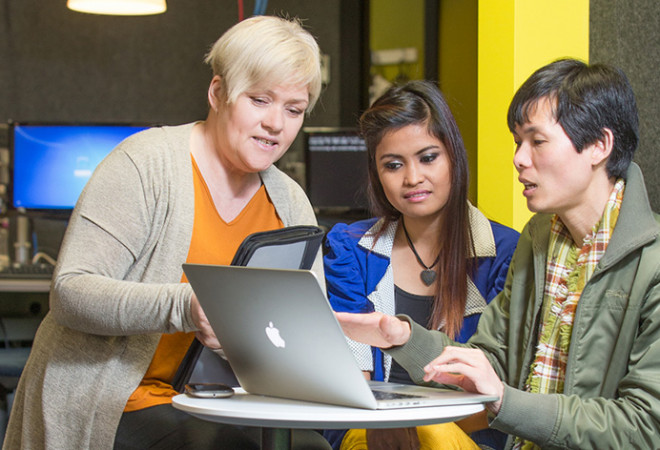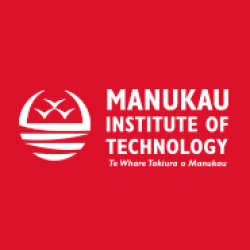
Literacy Game in a Virtual World
Status
Completed: 6 April 2014
Project Details
A project completed in 2014, undertaken by Manukau Institute of Technology, to develop a new literacy game, The Mythical World of Hīnātore, to assist students to fill in gaps in literacy and numeracy and to focus attention on aspects of sentence construction.
Aims:
The aims for this project included:
- filling identified gaps in student profiles in both literacy and numeracy
- improving retention and success, particularly for students most at risk, i.e. those with deficiencies in literacy/numeracy
- providing a learning environment that is flexible and will be of use to the greatest number of lecturers and students
- providing a uniquely New Zealand environment with which all students can identify.
Methodology:
The data was collected from the first two classes of students who played the literacy game, The Mythical World of Hīnātore. The methodology used involved:
- writing samples were collected from all students, both before and after the game playing experience, and writing samples were also collected from two comparable classes who did not use the literacy game
- two sets of Adult Literacy and Numeracy Assessment Tool TEC scores were also examined for all four classes
- surveys were administered to both students and staff, with students completing their surveys on completion of the game
- all staff members on the Foundation Literacy team, plus lecturers from Science and Business, completed a session where they were able to play the game, and then complete an in-depth survey.
Team

Merle Hearns
Project Leader
Manukau Institute of TechnologyAaron Griffiths
F/Xual Education ServicesStatus
Funding
$8,208.00 (excl GST)
Key Findings
The key findings from the project were:
- Student feedback was extremely positive. Students stated that the game helped develop their awareness of sentence structure and improve their knowledge and use of accurate grammar. Students stated that the game highlighted the need to take care when they entered text and made them more aware of the essential, basic skills that underpin academic writing.
- Students reported that the game environment and narrative were interesting and engaging.
- In reflective comments, students reported a greater cultural awareness and an appreciation of the Māori legends used in the game narrative.
- Because it is fun and motivating, students will use it, even at home and in their own time. Many of the MIT students have downloaded the software on home computers and played the game with their families. This is a change for the better. If students are enjoying grammar and sentence construction, the result cannot be negative.
- Observation of students in the game, as well as comments made by students, indicate that students’ digital literacy and computer ability is enhanced through the Literacy Game.
- TEC literacy test results did not differentiate between student groups. As TEC measures reading literacy and not writing literacy, this result could have been anticipated. A tool for measuring writing literacy would be a valuable addition to the existing TEC testing portfolio.
- Data from writing analyses supported the hypothesis that the game would bridge writing literacy gaps. Students who participated in the game showed a more pronounced improvement in writing, than students who did not.
- Staff responses were extremely positive. Staff agreed that the game would be a useful tool to help bridge student gaps in literacy.
- Although there has been an overall improvement in retention and success from 2013 to 2014 in Level 3 Health, it cannot be determined how much, if any, of this improvement can be attributed to the game. A close analysis of ‘at-risk’ students still needs to be completed.
Key Recommendations
The key recommendation from the project was:
Making use of the game | It is hoped that lecturers and students around New Zealand make use of the game as it is now freely available on the Kitely sim and can be used by anyone. Any lecturer could offer this game to a class, a tutorial group, a study group, or an individual student. The lecturer does not need to be proficient in game play or have an avatar. Students play this game independently and do not need a lecturer on the sim with them. All the lecturer needs to know is how to access the software and recommendations for gameplay (these are provided in the Report Appendices).
A research report prepared by Merle Hearns.
(PDF, 2.6 MB, 58-pages).
- 15 August 2014